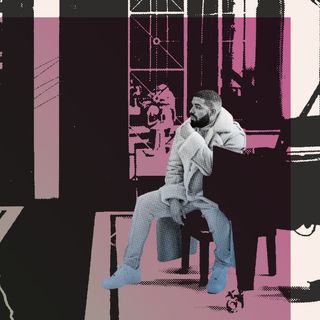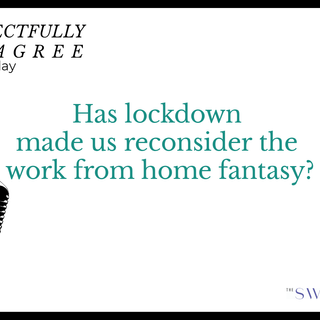
It’s Okay: To Sometimes Enjoy Being in Quarantine
Yes, we all feel horrible about the news, but can we also feel happy we’re not stuck in traffic?

In It’s Okay, we defend our most embarrassing, unpopular opinions.
Here is a conundrum. A virus is threatening to take out a chunk of the human race. Life has ground to a standstill. Suffering lurks around each corner. Fear and confusion are our top two emotions. Plus, we’re all distanced from our friends and loved ones indefinitely Everything sucks.
Within this pandemonium, I have a particularly dark confession to make. Now that I don’t commute an hour and fifteen minutes to work, mornings have changed. Each day, I wake up at 7:30 sharp to soft meowing and submit to a half-hour long group huddle composed of two humans and one cat. Almost like a ritual, tea is made, eggs are fried and toast is buttered to a genre-salad of a playlist, and time ambles. Each day may morph into the same form of anxious drudgery, but each morning seems like a Sunday morning — arguably, the best part of a weekend.
Nobody knows what to feel about liking certain things about a really bad situation. It could be that being stuck at home does magnificently well with my personality — the creating home spaces that are a little too comfortable to leave, and canceling plans to stay in and watch TV sort. It could be the relief, or even blindness, afforded by the immense privilege of being quarantined in a very ideal situation. Or it could be an inexplicable need to find joy amid the most nonsensical circumstances, regardless of social standing or situation, which I lean towards the most.
Related on The Swaddle:
Quarantine Forces Us to Consider: What Purpose Do Bras Serve, Really?
Absurdly cheesy? Yes. But also true — trying to find small positives in the worst situations are clear markers of human resilience. Resilience is how we adapt to demands of stressful situations — and just as morbid humor releases tension and builds resilience, so does optimism. Finding joy in small rituals, in companionship, in the morbid, and in optimism are just mechanisms that help us trudge on.
Yet, attempting to enjoy quarantine is decidedly unpopular — and often, rightly so, because Kim, there’s people that are dying. Empathy and a sense of care for the community prevent us from merely looking out for ourselves and staying blind to the horror that those without class privilege cope with. However, there’s no reason to believe that positivity during a crisis is unforgivable — unless it attempts to act as a smokescreen for suffering. Thinking, and judging good and bad situations in tandem, are a framework of how we think — specifically known as the Broaden and Build Theory.
According to researchers, the theory posits that negative emotions prepare us to behave in one specific way, like escaping a room when afraid. In contrast, positive emotions expand cognition and behavior. This means if someone experiences positive emotions when stressed, their mindsets are broadened, which helps them regulate the negative emotions they experience.
Now if we simulate this on a day-to-day setting — when we’re reminded of the pandemic and the horrible catastrophes it has caused, we’re thinking negatively — that we must feel guilt when privileged. After which, when we think of ways in which we can help — by donating, easing each other’s burdens and caring, we’re thinking positively — that there still remains hope within pandemonium.
There’s no release, or potential martyrdom, in constantly worrying about the state of the world falling apart. There’s no race to ensure who is the saddest, and who is the most critical of their own privilege. Being grateful of one’s ensured safety and comfort in a lockdown isn’t a crime, unless it’s completely blind to the structural privilege that facilitates it. There’s no solid right or wrong thing to feel. The emotions — positive or negative — we experience are just the brain’s way of coping with a sudden change in the environment, not an indictment of the sort of people we are. Taking joy in the little things like the comfort of familiar spaces or company, a morning routine, some extra time to oneself, and no loud traffic, is normal and fine, so don’t sweat the ethics of it too hard — the last thing we need is a brain explosion pandemic alongside an awful virus pandemic.
You’ll be alright.
Aditi Murti is a culture writer at The Swaddle. Previously, she worked as a freelance journalist focused on gender and cities. Find her on social media @aditimurti.
Related


The Buzz Cut: All the Celebrity Missteps That Made Us Cringe Under Lockdown
